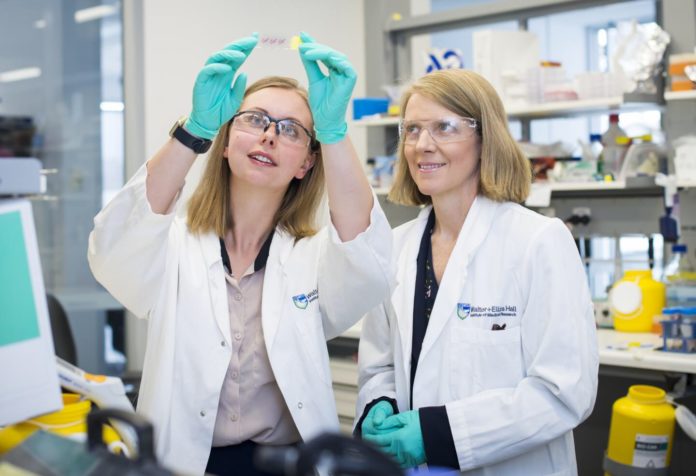A potent ovarian cancer drug works in some patients, not others. Doctors can now predict who would
Powerful drugs called PARP inhibitors (PARPi) are an important part of the arsenal against ovarian cancer. However some patients respond to them and some don’t.
Australian scientists have revealed a way to identify which patients would respond to PARP inhibitors (PARPi), resolving an important question in ovarian cancer care. The findings add to a vital ‘checklist’ that helps to match ovarian cancer patients with the right therapy for their cancer. Being able to offer targeted treatment is crucial for patient survival rates which have seen little improvement over the past 30 years.
The study, published in Nature Communications, was led by Professor Clare Scott, Dr Olga Kondrashova, Dr Matthew Wakefield and Dr Monique Topp from the Walter and Eliza Hall Institute; in collaboration with Associate Professor Alexander Dobrovic from the Olivia Newton-John Cancer Research Institute and LaTrobe University School of Medicine.
Subtle yet significant differences
Professor Scott said it was well documented that PARPi could only work when the cancer’s DNA repair process wasn’t functioning as it should.
“For the past two decades, it was thought that ovarian cancer patients whose cancer’s BRCA1 genes are ‘silenced’ – or methylated – have faulty DNA repair and therefore were good candidates for PARPi treatment. Yet the puzzling thing was we were unable to predict the patients for which the drugs would work,” she said. BRCA1 genes help prevent uncontrolled cell growth. Mutations (methylations) in the gene are associated with several forms of cancer.
“There is no ‘one size fits all’ approach for ovarian cancer care. We need to keep making these strides in understanding so we can better match patients with the right treatment for their cancer”
Dr Kondrashova said the ‘Eureka moment’ came when the researchers discovered subtle differences in some BRCA1 methylated cancers. These subtle yet significant epigenetic differences explained why some patients would respond to the drug, while others would not.
No ‘one size fits all’
Professor Scott said understanding the various reasons for PARPi resistance was vital for developing better, more personalised patient care.
“There is no ‘one size fits all’ approach for ovarian cancer care. We need to keep making these strides in understanding so we can better match patients with the right treatment for their cancer,” she said.
Photo Credit: Walter and Eliza Hall Institute


